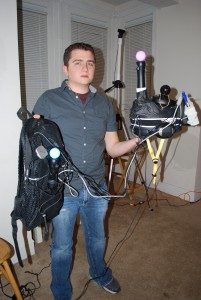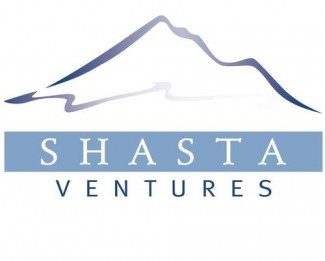The team behind Project Holodeck has announced that it has secured $4 million in venture funding to help them build their immersive VR experience.
Project Holodeck – From University Project To Investment Opportunity

We’ve been following Survios (or Project Holodeck as they used to be called) for some time now. Ben Lang stepped into the Holodeck back in February of last year (see video above) at the dawn of the current VR resurgence and we later broke news of their Razer Hydra and Oculus Rift enabled experience, Zombies on the Holodeck.
The original Project Holodeck idea has its roots in an experiment that began at USC in their Mixed Reality Lab. One of their peers was none other than Palmer Luckey, Founder of Oculus VR. In fact, early Project Holodeck iterations included an early prototype HMD similar in design to the Oculus Rift. As you can see from the above video, the system resembled a mad scientist’s hobby project. It leveraged technology from the Razer Hydra motion controllers (for user input) to Sony’s Move controller, used ostensibly to allow tracking of the player 3D space – both of which mounted precariously atop a wobbly looking helmet. It looked crazy, but to quote Ben from his time in that early version:
I was so immersed that at one point I needed to set the Razer Hydra controllers down to adjust my helmet and I nearly tried to set them down on a virtual table next to me. There was no table in real life — had I not quickly realized what I was about to do, I would have dropped the controllers straight onto the floor below.
Survios are an interesting proposition for funding as they are working to produce both a hardware solution and compelling software to leverage that hardware. What’s more, despite their relative youth as a company, they can claim to have spent more time than most trying to solve technical and creative problems thrown up by virtual reality.
The money raising has been led by Shasta Ventures, a company that labels itself as a “boutique, early stage venture firm”. Shasta partner said of the young startup “Survios is hands down the best at what they do. The team is young, hungry, and extremely talented, and they have solved some tremendously important challenges that will enable the entire VR industry to evolve.”
We’re thrilled to see such James Illif (CCO) and Nathan Burba (CEO) achieve so much in such a short time. Writing for Road to VR at times feels very much like documenting the beginning of VR history. Like Palmer Luckey and his Oculus Rift, Project Holodeck is another project in the VR space that started with nothing but makeshift prototypes and a real passion for what they believe in and have now attracted the attention from the business world. Many will say this is the Facebook effect, and to some extent that’s true, but we think it’s more that the world is finally waking up to the fact that not only is VR here to stay, it’s going to change everything. And there’s a lot of money in everything.








